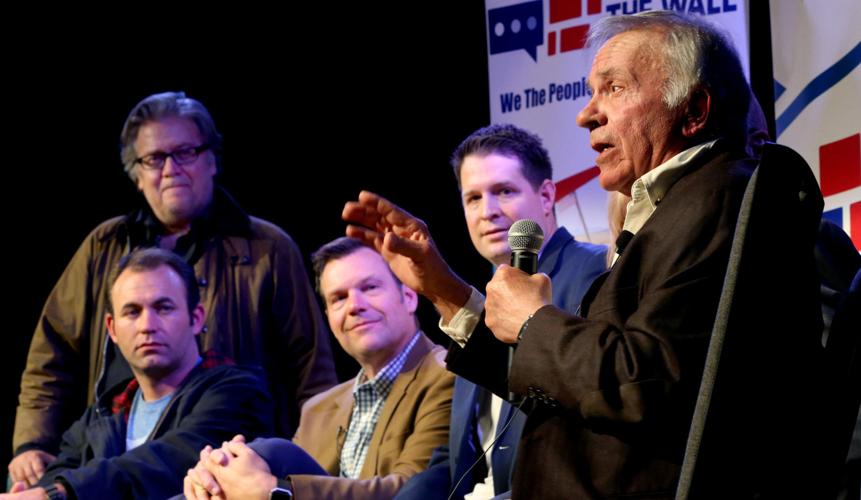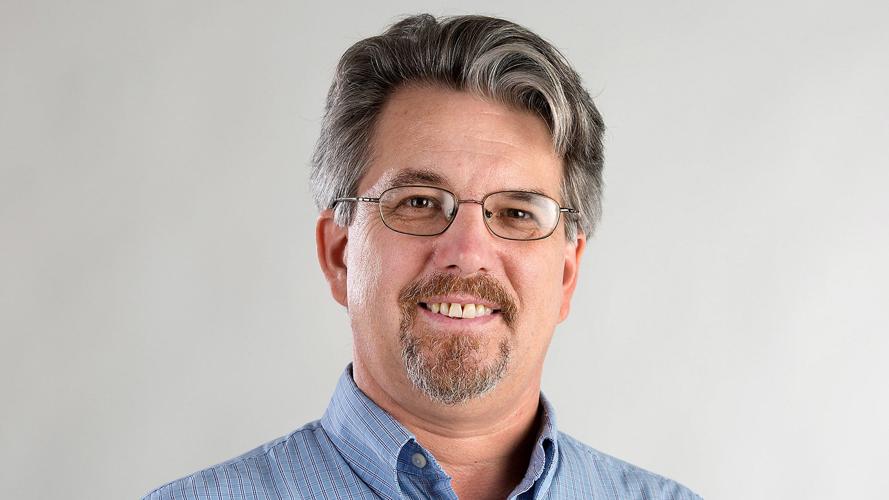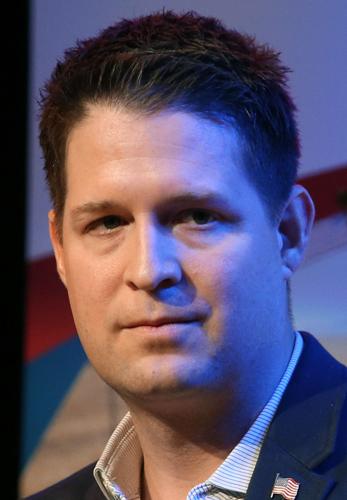The White House didn’t try to hide its reason for pardoning Stephen Bannon.
The president didn’t bother arguing the investigation was biased or the prosecution unjust — nothing like that.
In a brief statement issued on Trump’s last day in office, the White House explained its “full pardon” by citing Bannon’s political persuasion and activity.
“Prosecutors pursued Mr. Bannon with charges related to fraud stemming from his involvement in a political project. Mr. Bannon has been an important leader in the conservative movement and is known for his political acumen.”
So that’s what justified a pardon under the past president — political allegiance and leadership.
In case you doubt the shallowness of the reasoning, consider this: A New York-based federal grand jury indicted Bannon in August 2020 along with three other people who worked on the We Build the Wall private border-wall project.
Brian Kolfage, Andrew Badolato, Timothy Shea and Bannon all faced charges of conspiracy to commit wire fraud and conspiracy to commit money laundering and have pleaded not guilty.
Of the four co-defendants, Trump pardoned only Bannon.
This wasn’t about correcting an injustice, which is the reason presidents have pardon power. Like so many of Trump’s pardons, this one intended to excuse a friend or ally from responsibility for his actions.
Further, it could potentially protect Trump himself. Without pending criminal charges against Bannon, federal prosecutors have no leverage to convince him to supply any incriminating evidence he might have against Trump.
All in all, it was another abuse of the pardon power, which the founders intended to be corrected through impeachment of the president. Of course it is too late for that.
But justice for Bannon remains plausible, because the acts he is accused of are also considered state crimes, and state prosecutions aren’t covered by the pardon. It only excuses him from prosecution under federal law.
This is where the Arizona Attorney General’s Office or the Pima County Attorney’s Office should step in.
You see, the conspiracy that federal prosecutors alleged has strong links to Arizona. You could almost say it started in Pima County.
On Feb. 8, 2019, Bannon, Kolfage and others hosted an event at Quail Creek in Sahuarita that kicked off a new fundraising effort for We Build the Wall. About 300 members and guests of the Quail Creek Republican Club attended, applauding and donating enthusiastically.
That night, Bannon told Star reporter Curt Prendergast “100% of this money is going to build the wall and the legal fight” to get the wall built. It was a pledge that the project repeated in online posts and in emailed appeals for donations.
But, if the indictment is correct, Bannon appears to have known that same night in Quail Creek that he and the others planned to siphon off money, through a nonprofit that Bannon controlled, to pay Kolfage and others.
In the days before Feb. 11, 2019, the indictment says, Bannon instructed Badolato to wire $250,000 from We Build the Wall to the nonprofit Bannon controlled. Although the nonprofit is not named, it appears to be one Bannon founded called Citizens of the American Republic.
Then, on Feb. 11, just three days after the Quail Creek event, the nonprofit wired $100,000 to Kolfage, the indictment says. Thereafter, Bannon and the others paid Kolfage a salary of $20,000 per month through various shenanigans, although Kolfage had said publicly he would not take a salary.
Kolfage is a severely wounded veteran who spent years in Tucson, first as a civilian employee at Davis-Monthan Air Force Base, then as a University of Arizona architecture student.
Overall, Bannon’s nonprofit received more than $1 million from We Build the Wall, some of which went to Bannon’s “personal uses and expenses,” the indictment says.
I consulted with a couple of local lawyers with deep experience in the criminal-justice system to check on the feasibility of a local prosecution. Both said the facts alleged in the indictment could be charged as crimes under Arizona law.
John Leonardo, a longtime Pima County Superior Court judge and former U.S. attorney for Arizona, cited four charges that could potentially be brought: fraudulent schemes and artifices (Arizona Revised Statutes 13-2310), conspiracy (ARS 13-1003), money-laundering (ARS 13-2317) and accomplice liability (ARS 13-301).
Rick Gonzales, a longtime prosecutor and criminal-defense attorney, cited some of the same criminal laws and noted there is also possible civil liability.
"The people who give him money would also have a cause of action,” Gonzales said. “They knew what they were going to do and how they wanted to do it.”
A criminal prosecution would be a natural fit for the Arizona Attorney General’s Office, which has a special focus on consumer fraud and financial crime cases. But it’s unlikely that office would pursue a prosecution while Attorney General Mark Brnovich is leading it. He has been using his office to appeal to Trump supporters as he builds a base for a future campaign.
On the other hand, one of Laura Conover’s top priorities when running for Pima County attorney was to establish a new financial-crimes unit.
This might be a big case to take on for a county attorney who’s only been in office a few weeks, and for a unit just getting started, but on the other hand, the investigation by the U.S. Postal Service is complete and could simply be handed over for prosecution.
It would certainly serve the interests of justice.







